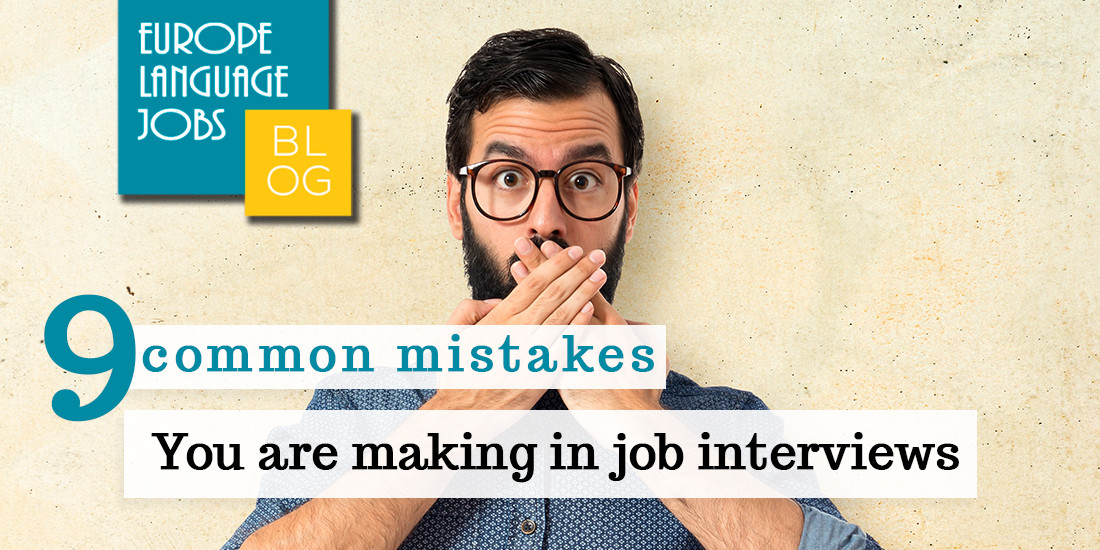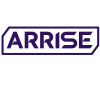Tip #1 and THE BEST tip I can give you: Treat an interview like a first date. Accentuate your good points but don’t lie, don’t speak negatively about exes (don’t speak about them at all, unless you’re asked) and show an interest in the other person without being overbearing.
So aside from that little analogy that I’m much prouder of than I should be, what are the 9 common mistakes you’re making in job interviews? From wearing the wrong clothes to being too nervous, not researching the company to talking about things unrelated to the position you’re applying for, let’s take a look and put an end to those horrible moments after rejection calls or emails when you think ‘why do I fail job interviews, what can I do better?’
What clothes to wear to an interview & how early to arrive
A huge surprise to me when I moved to Barcelona was that people laughed at me because I wore a suit, not in a mean way, it was more like, ‘that isn’t necessary here’. It’s better to be overdressed than underdressed, but still, a little research/asking around, and I could have saved myself the effort of walking for 45 minutes in a suit in August in Barcelona! (In case you don’t know what that’s like, DON’T DO IT). Equally, you don´t want to turn up in casual business wear and find everyone else in suits, so do a little research, and if that doesn´t yield any results, dress smart just to be sure. Check your phone is off or on silent before you go into the building, don’t let friends or your mum’s ‘good luck’ text ruin your chances.
Look at the route on Google Maps, how long will it take? Which bus to take? It takes 5 minutes to check and plan your route for the next day, and can mean a lot less stress in the morning! Turning up on time for an interview is generally seen as being late, don’t get there half an hour early, just 5-10 minutes is fine, so you can demonstrate punctuality and that you’re interested in working here.
Managers want employees who are willing to come in early and stay late, being a hard worker is a great attribute and it’s easy when you love your job, however it’s a double standard when you could come in 15 minutes early and stay late every night and yet if you’re just a few minutes late one day then they throw a hissy fit, but in the wise words of Marjorie Dawes, that’s not for here. Just show up early!
Dealing with nerves in an interview
If you’re nervous in an interview, you can take solace from the fact that this is not the only hiring manager out there, not the only company, not the only vacancy, in fact there is a 99.9% chance that there is a better job out there and so many more opportunities for you. Suddenly doesn’t seem so stressful anymore, does it?
Interviews can be like buses, bear with me because it will make sense at the end. Don’t go into an interview sweating and shaking, it’s not as endearing as movies portray and just makes you look like you’re out of your depth already. Remember that there are tons of vacancies out there, maybe they’re in different industries, locations or companies, but they are there, so if you don’t get this one, just get the next.
Don’t lie in an interview about skills or past accomplishments

If you lie to get a job you´re not qualified for, you will eventually get found out.
If you were an entry-level sales intern and told the interviewer you were a team manager, chances are your lie will be discovered eventually. Either through references, a mutual connection on LinkedIn or even through your work performance. If you lie on your CV/in the job interview, there is a very good chance you will be fired (and I think, as you got the job under false pretences you don’t get severance pay).
So don’t lie in a job interview and give yourself false titles or accomplishments, instead be sure to accentuate the positives, what you’ve done well and relate this to the company you want to work for.
Do your research on the company
This is where my advice for treating an interview like a first date goes out the window, research. Don’t research your date, that’s just weird. You should; however, research the company!
I remember being on the phone to a recruiter at a leading financial services company a few months ago about a vacancy she thought I’d be appropriate for. We were discussing the ‘Big Four’ & she said she was impressed that I knew about this (something I thought was standard that most people would know about when looking into the industry) and mentioned that a candidate she had spoken to earlier didn’t know what she was talking about (The Big Four are the largest accounting firms).
Anyway, regardless of the experience, contacts or skills that the other candidate may have had, he or she discounted themselves by not doing any research into the company or industry. I ended up rejecting the job in the end as finance doesn’t really interest me, and was very happy to instead accept a job doing something I really enjoy – writing! Albeit for much less money. So, RESEARCH THE COMPANY AND INDUSTRY! Even just a 10-minute Google search can give you something interesting to talk about during the interview and let the recruiter know you’re interested and knowledgeable.
- What the company actually does
- Competitors
- Industry developments
This should give you enough material to hold a conversation during an interview, even interns are expected to know something about the company and the industry and REMEMBER, the interview is a conversation, not an interrogation. Be aware of this during the interview, it helps when dealing with nerves, but it also helps your performance!
Rejected because you don't have enough experience? Relate your experiences to the role
A recent graduate will likely have little to no work experience (relevant or otherwise), emphasize the experiences you DO have RELATED to the job you’re applying for, if you’re applying to be a marketing intern, do you think it will add to your application to talk about the 6 months you worked behind a bar? ‘It demonstrates I’m a hard worker and handle pressure blablabla’. Don’t waste your time; you get such a limited space on your application to interest recruiters, fill it with relevant experiences.
FOR EXAMPLE
Let’s say you’re applying to a finance internship but you’ve just left Uni and don’t have relevant work experience…your CV will look pretty blank, right?
Not necessarily!
Be smart, think about your LIFE experiences, do you do your own budgeting/finances with your student loan/wages? Did you learn something? Did you enjoy it? Even relatively small things that may SEEM insignificant to you can have a great influence on your application!
Ask questions: What happens after the interview?

5 points to anyone who knows what this is from
‘Do you have any questions?’ ‘Erm…No, you answered everything already’.
Hiring managers want to hear a question or two and look unfavourably on people who don’t ask any. I remember going into an interview with a list of questions, but the interviewer answered everything before I asked it, about the tasks, salary, possibilities for the future, etc. So he did a good job, but then I’m sitting there thinking I need to think of a new question now… A few things to ask about that don’t always get covered are:
- Workplace culture (atmosphere, people, etc.)
- Specifics of day-to-day (What will a normal day be like for me)
- What is the best/worst thing about working for the company
- Next steps in interview process: Establishing what happens after an interview is very important, your time is valuable, and many recruiters forget that you need responses to be prompt and honest, just like they want to receive. Knowing what to expect after a job interview can help when deciding whether or not to send a follow-up email/phone call, so don’t be afraid to ask what you should expect.
Interview body language, long-winded answers & asking about salary in the interview
Why is body language important in an interview, you may ask? Well, check here for more on the importance of body language in an interview.
Don’t ramble on and bore the interviewer with the minutiae of your everyday tasks, oh, you check emails before your cup of coffee? Awesome TELL ME MORE… Keep it interesting, i.e. RELATED to the job you’re applying for, DEMONSTRATE your KNOWLEDGE & EXPERIENCE and then shut up so they can continue the conversation.
Hold off asking about money, it’s a perfectly valid question & very important; however, because it looks like you’re only interested in money, we have to do the dance around the subject and either let the interviewer bring up the topic or ask towards the later stage of the process.
A question that can really go either way, depending on the interviewer:
• What’s the biggest challenge your company is facing at the moment?
If you have a solution, awesome, if you don’t, then it really doesn’t matter, the main reason is that you’ve used the first part of the interview to demonstrate your skills & experience, this is the part to demonstrate you’re interested in the company.
One of the most difficult interview questions & how to answer it
‘What’s your biggest weakness?’
I’ve seen some comments recently where people have said this question angers them and they won’t deal with recruiters who ask this question, not because it can be one of the most difficult and common interview questions but it´s a bit of a trick question. Fair enough if you have the luxury of taking your pick of recruiters, but not all of us are this lucky. So what can the rest of us do to answer tough interview questions?
What´s your biggest weakness question will almost certainly come up, so have something prepared, don’t um and ah and say ‘oh I can’t think of one’ or give them the old ´I work too hard´, even if you are perfect, give them a genuine weakness that isn’t related to the job you’re applying for or won´t adversely affect your performance, for example:
I’m sometimes hesitant to ask for help because I want to be efficient, learn things by myself and not disturb anyone else. I’ve realised that sometimes it’s necessary and people are happy to help, so I’m working on it.
A decent answer to a trick question, it addresses the problem and how you’re solving it.
The interviewer generally just wants to see that you’re self-aware, conscious that you are not perfect and not some fool who will charge into things thinking you're a real-world Harvey Specter. Check here for more on the most difficult interview questions and how to answer them.
DON’T speak negatively about previous employers
Some managers/companies are just awful, and people should be aware so they don’t go through a bad experience like you did, but don’t talk about it in your interview, the recruiter won't benefit, and neither will your application. If you are changing jobs because of a bad manager or a poorly run company, you shouldn't give this as the reason - recruiters seem to think it's your fault, and you could be a troublemaker or speak badly about their company in the future. What can you do instead? What are some other reasons you could be looking for a new job?
- You're relocating and, unfortunately, cannot work remotely
- New challenges so you can grow and improve
- New responsibilities and a change of environment
So there you have it, I hope that you feel prepared and confident about going into an interview and won´t be making these common interview mistakes like many of your rivals, if you want to keep refining your interview skills you could check here for tips for a successful Skype interview or here for tips for a successful telephone interview. See you next time!
Bonus Point - Not preparing to take a test during your interview
Some interviewers can ask you to take a series of tests during the interview. Employers use these tests to measure whether you are the right candidate for the role. Some of the tests are:
Psychometric Tests - These are a series of timed questions: maths questions, reading comprehension questions or diagrammatic questions to test your ability as a candidate. Aptitude Tests - Employers use these short tests to assess whether you are the right fit for the role and have the necessary skills needed.






Kim Dammers1y ago
Although I have an honest and probably effective answer to the question about my greatest flaw, I think it is a very bad question. Most likely answers are: - "Flaws" that are reworded as positive attributes - Flaws that the applicant is working to overcome - Irrelevant flaws - True flaws that seriously count against the applicant. The first two kinds are tricky salesmanship showing that the applicant has read advice about answering this question. The third one is either being tricky or irrelevant. The last one is most likely from an honest and/or naive applicant, who quite possibly would make a great employee but probably won't get past this first interview. When I interviewed applicants, I did not ask this question, and if I had a co-interviewer who did, I either ignored the answer or tried to explain to my co-worker why the answer was useless. in fact, we never got an answer that I thought added to our understanding of the applicant. I have applied to a number of overseas positions where all details about the position (even the name of the potential employing company and even city) are not posted. Of course, I will ask about the school and what the work entails. There is an interesting disjoint between the idea that employees and employers are equal negotiators and much of the advice given to job seekers (e.g., don't ask about wages/salaries or benefits during the early stages, though employers are free to do so). Job applicants are always told not to disparage former employers, but what if, say, you were fired for blowing the whistle on a supervisor who soon after got jailed for what you blew the whistle about?
Although I have an honest and probably effective answer to the question about my greatest flaw, I think it is a very bad question. Most likely answers are: - "Flaws" that are reworded as positive attributes - Flaws that the applicant is working to overcome - Irrelevant flaws - True flaws that seriously count against the applicant. The first two kinds are tricky salesmanship showing that the applicant has read advice about answering this question. The third one is either being tricky or irrelevant. The last one is most likely from an honest and/or naive applicant, who quite possibly would make a great employee but probably won't get past this first interview. When I interviewed applicants, I did not ask this question, and if I had a co-interviewer who did, I either ignored the answer or tried to explain to my co-worker why the answer was useless. in fact, we never got an answer that I thought added to our understanding of the applicant. I have applied to a number of overseas positions where all details about the position (even the name of the potential employing company and even city) are not posted. Of course, I will ask about the school and what the work entails. There is an interesting disjoint between the idea that employees and employers are equal negotiators and much of the advice given to job seekers (e.g., don't ask about wages/salaries or benefits during the early stages, though employers are free to do so). Job applicants are always told not to disparage former employers, but what if, say, you were fired for blowing the whistle on a supervisor who soon after got jailed for what you blew the whistle about?